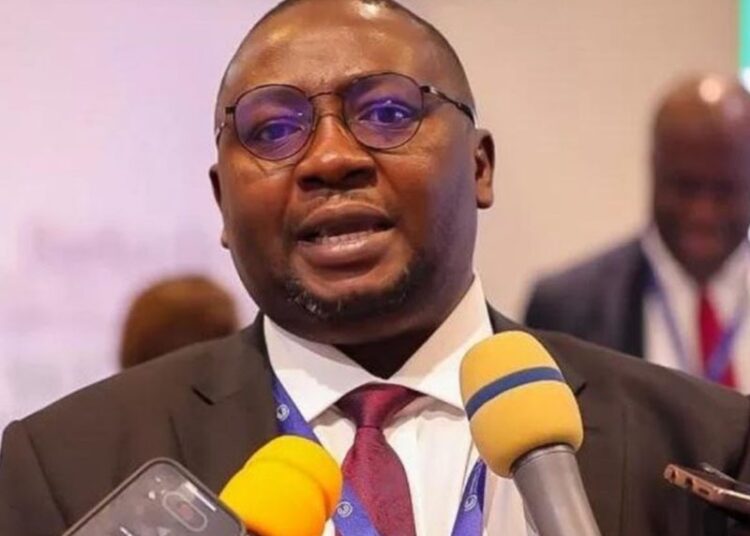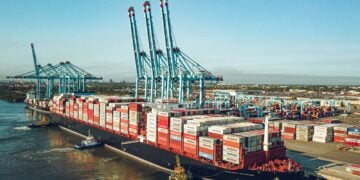The Minister of Power, Adebayo Adelabu, has said that Nigeria achieved a remarkable power generation capacity of 6,003 megawatts on March 2, 2025, under the administration of President Bola Tinubu — marking the highest level ever recorded in the country’s history.
According to him, the feat was followed by a peak generation evacuation of 5,801.44 megawatts on March 4, 2025.
The minister, who stated this at the sixth edition of the 2025 Ministerial Press Briefing Series in Abuja on Thursday, said Nigeria recorded an impressive daily energy output of 128,370.75 megawatt-hours on that day.
“The average daily power generated and distributed in the first quarter of 2025 was 5,700 MW, compared to 4,100 MW achieved in the third quarter of 2023. This indicates a growth of 1,600 MW — nearly a 40% increase since we assumed office at the Ministry.
“Given that it took the country almost 40 years to achieve an incremental 2,000 MW in average energy, we accomplished this in less than two years,” he stated.
He further noted that following the April 4, 2024, tariff hike for Band A electricity customers, the country’s power sector revenue increased by 70%, while tariff shortfall was reduced by N700billion.
“It is evident that due to our transformative tariff reforms, the market generated an additional N700 billion in revenue in 2024 — a 70% increase. In 2023, the power sector’s market revenue was around N1.05 trillion, with annual growth rates of just 5–10%. But following the 2024 tariff review, revenue grew from N1 trillion in 2023 to N1.7 trillion in 2024. This is a result of the cost-reflective tariff adjustment for Band A customers. Such a jump — from 19% in previous years to 70% — is unprecedented and commendable.”
On metering, Adelabu said the launch of the Presidential Metering Initiative signalled a major move by the current administration to bridge the metering gap.
He disclosed that the government targets the deployment of 1.1 million meters by the end of 2025 and 2 million annually over the next five years.
“The initiative, backed by a ₦700 billion FAAC allocation, has led to the establishment of a new SPV with a fully constituted board to drive implementation. The procurement process has already begun.
“Through the World Bank-funded Distribution Sector Recovery Program (DISREP), over 3.2 million meters will be procured and installed alongside meter data management solutions for DISCO optimisation. The first batch of 75,000 meters under ICB1 arrived in April, with an additional 200,000 expected in May 2025,” he said.
Adelabu added that electricity Distribution Companies (DisCos) were undergoing restructuring aimed at improving service delivery and operational efficiency.
However, he also highlighted key challenges facing the sector, including debts owed to Power Generation Companies and vandalism.
He said the government is working with stakeholders to address these issues. “There are huge outstanding debts to GenCos, including unpaid government subsidies amounting to N4 trillion as of December 2024. Of this, N1.94 trillion remains unpaid for the year 2024 alone — currently at about N200 billion monthly.
“Another critical challenge is the rampant vandalism of power infrastructure, coupled with electricity theft and chronic non-payment of bills. These acts not only disrupt electricity supply to entire communities but also place a heavy financial burden on the sector,” he stated.
Earlier, the Minister of Information and National Orientation, Alhaji Mohammed Idris, reaffirmed the government’s commitment to improving electricity access and affordability for all Nigerians.
He described electricity as central to the administration’s Renewed Hope agenda.
“For President Bola Ahmed Tinubu, electricity is pivotal to industrialising Nigeria for job creation, skills development, exports, and prosperity. Today will be no different — I have no doubt that you will hear more about the administration’s impressive efforts in expanding electricity access and affordability across the country,” Idris said.
He commended the media for their role in nation-building and urged them to report responsibly.
“My request to all media representatives present here, and those joining virtually, remains the same: I urge you to report accurately and avoid sensationalism.
“We owe it to Nigerians to deliver the news with professionalism and integrity — with the intention of informing and educating. The media remain vital stakeholders in nation-building and democratic growth. As a government, we will continue to respect and support you.”
He further reiterated the government’s commitment to building a modern, thriving media industry.
The Minister, who was accompanied by heads of agencies under the Federal Ministry of Information and National Orientation, said he had held a series of high-level meetings aimed at enhancing the technical and technological capacity of Nigeria’s broadcasting sector.
“We were able to forge valuable partnerships that the media industry will undoubtedly benefit from,” he said.
He also shared insights into his participation at the Nigerian Business Forum in Paris, hosted by Business France, where he met with senior UNESCO officials to advance the establishment of a first-of-its-kind Media and Information Literacy Institute in Abuja.
“The Institute is expected to play a transformative role in the professional development of Nigerian journalists and foster a resilient and responsible media ecosystem. It will significantly strengthen Nigeria’s media environment and support journalists in performing their duties more effectively,” he stated.





